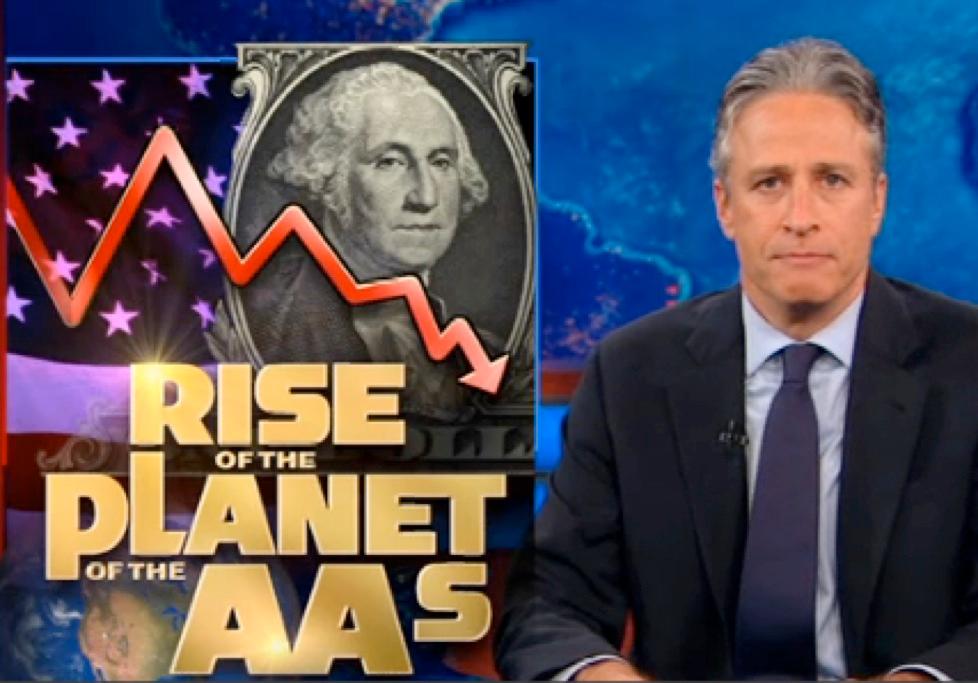Another Oops! moment for Standard & Poor’s ratings
As John Stewart points out, Standard & Poor’s means average and below average.
BOSTON — Oh, my. It's been a rough last few months for Standard and Poor's.
First, in August the agency — alone among the big three ratings firms — downgraded US government debt, landing itself in the middle of a media firestorm (even though its analysis actually had some very good points).
Several weeks later, in a move that regulators insisted wasn't politically motivated, the US Securities and Exchange Commission moved toward filing civil charges against S&P in connection to its AAA rating on a toxic 2007 mortgage bond deal. It was the first regulatory action against any of the ratings firms in connection with the mortgage meltdown, even though lawmakers have concluded that their stamp of approval on toxic assets was a "key enabler" of the financial crisis. (Although its two competitors, Moody's and Fitch, also rated the bond, so far only S&P has been served with notice of impending legal action.)
Of course, ratings agencies are in the business of passing judgement on highly complex financial instruments. Their analyses are used to make fast, multi-billion dollar investments. So you'd think they'd be doing back flips to be meticulous, rigorous, punctilious, dilligent and careful. Being in the sights of regulators and the media would even compound this.
Well, that's not how things are playing out. Instead, the company appears hopelessly sloppy.
Last week, S&P accidentally informed some (but not all) of its clients that it was downgrading France's debt by one notch, from its perfect AAA status. Shortly afterwards, it had to eat crow and say that it had no such plan to do that. Oops.
Descending from a perfect credit rating to a very close to perfect one might not seem like a big deal. But the gravity of the gaff can hardly be exagerated. The bailout program that Europe has arduously cobbled together for its highly indebted members depends entirely on the AAA status of France, Germany and a few lesser contributors. Now, S&P's oops moment appears to have caused investors to flee from French debt — and politicians are fighting back.
The most recent sign of S&P's incompetence came yesterday, when the headline of a report announced that it was upgrading Brazilian debt by one notch to tripple B minus (BBB-), Reuters reports. The trouble was, Brazil already held that debt rating. So the company swiftly change the headline to BBB.
In S&P's defense, it got the rating notation right in the text of the report. But did no one at the firm read the report's headline?
Then again, perhaps expectations aren't very high at the firm, whose name means average and below average, as John Stewart has pointed out on the Daily Show.
See the video below:
We want to hear your feedback so we can keep improving our website, theworld.org. Please fill out this quick survey and let us know your thoughts (your answers will be anonymous). Thanks for your time!
